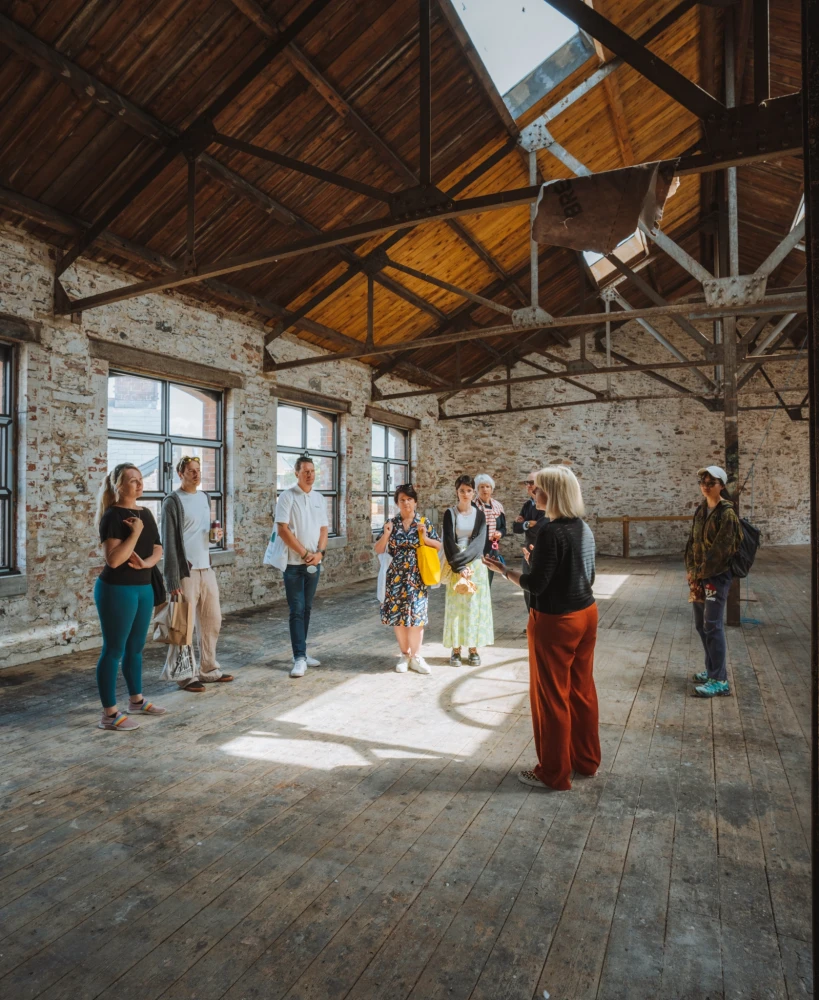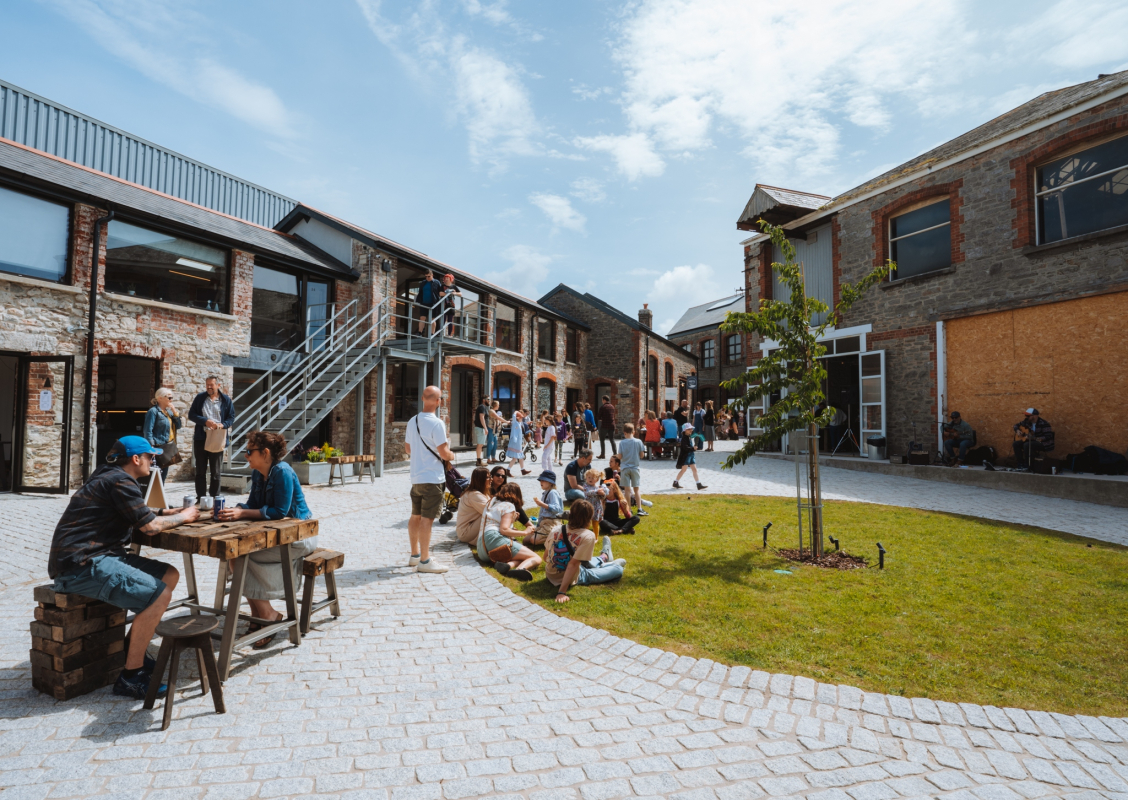This website uses cookies in order to enhance the overall user experience.
Why Plymouth?
When people learn that Eat Work Art exists only in London and Plymouth, they’re often surprised. Why not Manchester, Bristol or Brighton? Cities with well-worn creative reputations. Why Plymouth?
For a workspace provider rooted in Hackney’s creative resurgence, expanding beyond London was always going to be about more than growth. It needed to be somewhere with raw potential, not just cultural capital. And Plymouth offered both. The city’s post-industrial architecture, proximity to nature and burgeoning creative community made it a natural choice.
Devon is home for Eat Work Art’s founder Leo. "From a practical point of view, it helped that I was close by" he says. "But we wouldn’t have chosen Plymouth only because of that. It had many of the prerequisites we needed to make it work. A strong creative community, brilliant arts institutions and buildings full of potential but in need of some love."
Alma Yard, Eat Work Art’s first development outside the capital, sits a few minutes walk from the Barbican. Formerly a Victorian rope works, it is now home to trailblazing businesses and individuals shaping new cultural ground in arts, design and production. The vision was shaped in response to the people and place around it, rather than happening in isolation.

Leo’s early visits to other creative institutions and universities across the city confirmed the strong cultural undercurrent was present, even if at times under-celebrated on a national scale. "As soon as I clocked the creative atmosphere, I knew it was worth trying," he reflects. "Plymouth had nothing like what we do, but that was part of the appeal."
What began as a question of how can Eat Work Art work outside London, it has since become a vote of confidence in Plymouth’s creative economy. “I feel one of Plymouth's greatest growth areas for the future is its creative industries and universities,” Leo notes. “I was excited that we could be part of driving Plymouth as a hub for arts and culture, attracting people to the city or back to the city, and giving graduates a reason to stay when they finish their studies.”
That momentum is already underway. Residents at Alma Yard now include graduates who’ve stayed, creatives who’ve returned to their home county, and creative businesses choosing Plymouth over bigger-name cities. "There is thriving creative talent throughout," he adds. "And bringing it under one roof is something we are passionate about."
What we have observed is a shift not just in activity, but in perception. "The rhetoric about Plymouth within creative circles has changed," says Leo. "It reminds me of Hackney in the early days. It’s exciting to be a part of bringing out its potential and shape the future of the city."
Plymouth may not be the expected choice, but for us, that is precisely the point. Our presence here is intentional; considered, long-term and full of potential.

